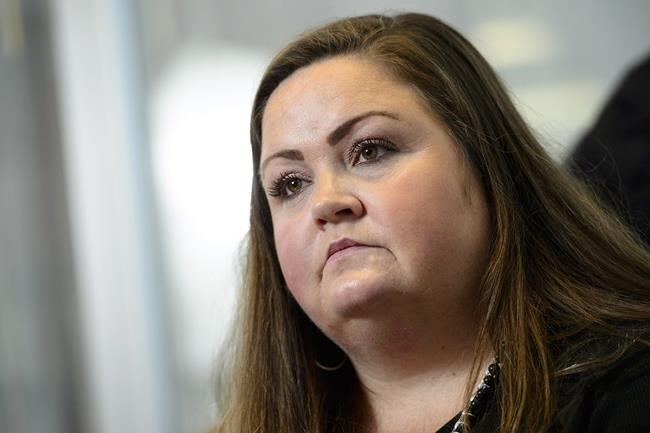OTTAWA, Ill. — Canada's watchdog for crime victims is calling on Parliament to overhaul their bill of rights, saying the five-year-old legislation has fallen "far short" of delivering on its promise.
Rules meant to amplify victims' voices in the justice system have failed to make them heard following "sporadic" implementation of a regime that needs more teeth, clarity and public awareness, federal ombudsman Heidi Illingworth said in a report Wednesday.
"The situation of victims of crime has not fundamentally changed since it was passed," she wrote.
The previous Conservative government introduced what it called a victims' bill of rights in 2015 that allowed crime victims to get information about offenders in the corrections system and have their views considered when decisions are made about those perpetrators.
Illingworth said the legislation should be amended to provide a legal remedy for violations, such as allowing victims to formally challenge authorities on whether their rights have been honoured.
"There was no right to appeal, there was no right to seek damages," Illingworth said Wednesday in a phone interview.
The 2015 statute was an important firs step but "really more of a statement of principles," she added. "It did not give people real rights, because in law you have to be able to have a remedy for rights to be real."
The justice system demands heavy lifting from people subjected to a criminal act, including those involved in the 2.2 million crimes reported to police each year.
"They are expected to report the crime, provide evidence, bear witness, be cross-examined on the stand and relive their traumas over and over again as they tell their truths — yet we provide them with little assistance to do so," Illingworth wrote.
"Unsupported victims are less likely to come forward. When victims are not treated as full partners in the criminal justice system, the system is less effective."
Victims should automatically receive information about their rights, rather than having to ask for it, she said.
Up to two-thirds of crime victims do not go to the police, said Irvin Waller, professor emeritus in criminology at the University of Ottawa.
Other reforms demanded in the report include a simplified complaint process filtered entirely through the ombudsman's office rather than a patchwork of agencies, more clearly defined obligations for criminal justice officials and more funding to train front-line workers in treating victims with "courtesy, compassion and respect."
The ombudsman is also calling for better data collection by courts, prisons and law enforcement agencies to understand police interactions with targeted populations, including Indigenous women and LGBTQ individuals.
"We know that there’s distrust, and this is especially concerning among communities of colour, racialized communities, Indigenous people. And how survivors of sexual violence are cheated by the justice system has been very, very problematic," Illingworth said.
Waller pointed to England and France as models on training guidelines for officials and restitution for victims, respectively. He said up to half of French criminal cases result in restitution payments, access to which should be guaranteed, according to the ombudsman's report.
In contrast to Canada, France also grants victims legal "standing" to appeal to courts for review when their rights are not upheld.
"We are a long, long way behind these countries," Waller said.
Illingworth's report further recommends amendments that commit to core funding for community-based restorative justice programs as well as a list of officials who have direct responsibilities to crime victims.
This report by The Canadian Press was first published Nov. 25, 2020.
Christopher Reynolds, The Canadian Press


